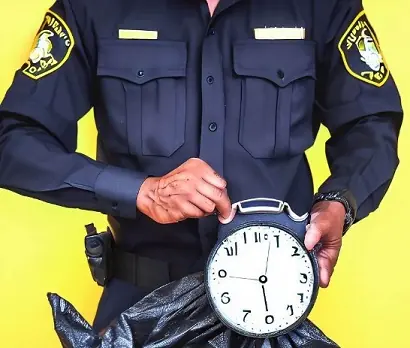The offence of wasting police time is committed when a person causes any wasteful employment of the police. Wasting Police Time – section 5(2) of the Criminal Law Act 1967 applies :-
Penalties for concealing offences or giving false information.
(2)Where a person causes any wasteful employment of the police by knowingly making to any person a false report tending to show that an offence has been committed, or to give rise to apprehension for the safety of any persons or property, or tending to show that he has information material to any police inquiry, he shall be liable on summary conviction to imprisonment for not more than six months or to a fine of not more than [F3 level 4 on the standard scale] or to both.
(3)No proceedings shall be instituted for an offence under this section except by or with the consent of the Director of Public Prosecutions.
Criminal Law Act 1967 Section 5
The Crown Prosecution Service (CPS) publish detailed guidance for prosecutors in relation to wasting police time :-
The offence of wasting police time is committed when a person causes any wasteful employment of the police:
Proceedings may only be instituted by or with the consent of the Director of Public Prosecutions: s.5(3). Consent may be granted after charge but must be before a plea of guilty is entered or summary trial. Consent must be obtained before proceedings are started by way of summons.
Examples of the type of conduct appropriate for a charge of wasting police time include:
Wasting Police Time – CPS
- false reports that a crime has been committed, which initiates a police investigation;
- the giving of false information to the police during the course of an existing investigation.
If you are caught wasting police time you could be jailed for up to six months and/or fined. Instead of taking you to court, the police might issue you with a fixed penalty notice under the Criminal Justice and Police Act 2001 (CJPA 2001).
The Code for Crown Prosecutors is a public document, issued by the Director of Public Prosecutions, that sets out the general principles Crown Prosecutors should follow when they make decisions on cases.
Check out our article on the highly questionable Sussex Family Justice Board and make up your own mind.
We recommend you should always seek formal legal advice if required, from a qualified and reputable lawyer (solicitor or barrister).
Our Family Solicitor and Family Barristers pages contains tips on how to find a competent lawyer.
We have a number of links to Free Legal Resources and Legal Organisations on our Free Legal Advice , Legal Aid and Pro Bono pages.
Read the reviews of Gavin Howe Barrister
“He is awful, underhanded and should not be practising law!”
Latest Articles
- What is a Paralegal ?A paralegal is a legal professional who performs tasks that require knowledge of legal concepts but does not hold the… Read more: What is a Paralegal ?
- What is a Judgment ?A judgment, also known as a judicial decision or court ruling, is the final decision made by a court of… Read more: What is a Judgment ?
- What is an Adverse Inference ?Adverse inference is a legal principle that plays a significant role in various areas of law, including criminal, civil, and family law. It arises… Read more: What is an Adverse Inference ?
- BarristersA barrister is anyone who has been Called to the Bar in England and Wales. For a barrister to offer… Read more: Barristers




